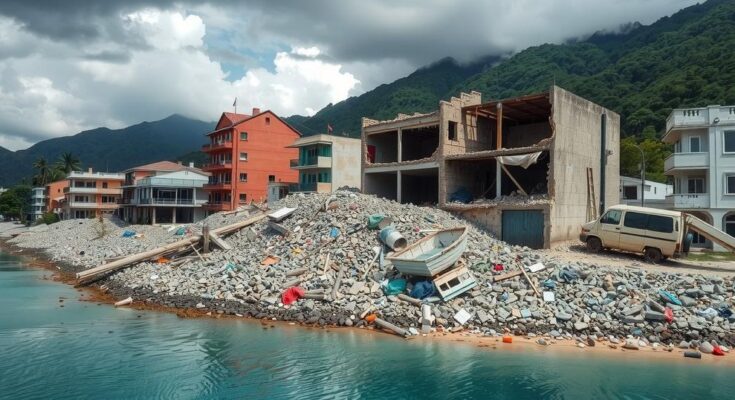January 12 has witnessed significant historical events, including Andrew Carnegie’s testimony in 1912, the founding meetings of the Big Four nations in 1919, and the first woman elected to the U.S. Senate in 1932. A devastating earthquake struck Haiti in 2010, resulting in over 100,000 deaths and subsequent cholera outbreaks. The day continues to be marked by notable events like the U.S. retaliation against Houthi attacks in 2024.
On January 12th throughout history, several significant events occurred. In 1912, industrialist Andrew Carnegie testified before the Stanley Committee, aligning himself with former President Theodore Roosevelt’s anti-trust views against President Taft’s trust dissolution plans. Notably, in 1919, the leaders of the Allied Powers—U.S. President Woodrow Wilson, British Prime Minister David Lloyd George, French Prime Minister Georges Clemenceau, and Italian Prime Minister Vittorio Orlando—convened in Paris to negotiate peace terms following World War I, thereby laying the groundwork for the establishment of the League of Nations.
In 1932, Hattie Caraway made history by becoming the first woman elected to serve a full term as a United States Senator. During World War II, on January 12, 1943, the U.S. Office of Price Administration announced the replacement of standard frankfurters with “Victory Sausages,” a rationing measure that combined meat and soy meal.
January 12, 1986 marked a remarkable achievement as U.S. Representative Bill Nelson journeyed into space aboard the Columbia shuttle, alongside Franklin Chang-Diaz, the first Hispanic American in space. In a significant political development, 1994 saw President Bill Clinton request Attorney General Janet Reno to appoint an independent counsel to investigate the Whitewater land deal involving him and the First Lady.
Furthermore, in 2006, a tragic incident in Mina, Saudi Arabia, occurred during a pilgrimage to Mecca, resulting in the crushing deaths of approximately 350 individuals at Jamarat Bridge.
However, the most devastating event on January 12 transpired in 2010, when a catastrophic magnitude-7 earthquake struck Haiti, primarily affecting its capital, Port-au-Prince. This disaster resulted in the death of at least 100,000 people and further exacerbated the poor infrastructure of the island nation, leading to a cholera outbreak that claimed thousands of lives over subsequent years. In more recent developments, on January 12, 2024, the United States and its allies undertook a full-scale retaliation against Houthi attacks in the Red Sea, demonstrating the ongoing geopolitical tensions in the region.
January 12 holds significant historical importance due to various transformative events that have shaped political, social, and environmental spheres. The catastrophic earthquake in Haiti in 2010 serves as a stark reminder of the ongoing vulnerabilities faced by nations struggling with poverty and inadequate infrastructure. Furthermore, the historical meetings of world leaders after World War I highlight the crucial moments that have influenced modern international relations and the establishment of global governing bodies such as the League of Nations. The remembrance of these events provides context for examining contemporary global issues.
In conclusion, January 12 has been marked by a multitude of pivotal moments ranging from monumental political alliances to catastrophic natural disasters. The historic events from Andrew Carnegie’s anti-trust testimonies to the disastrous earthquake in Haiti illustrate the breadth of human experiences encompassed within this date. Understanding these events not only provides us with lessons on past occurrences but also helps in analyzing ongoing global challenges and historical progress.
Original Source: www.upi.com




